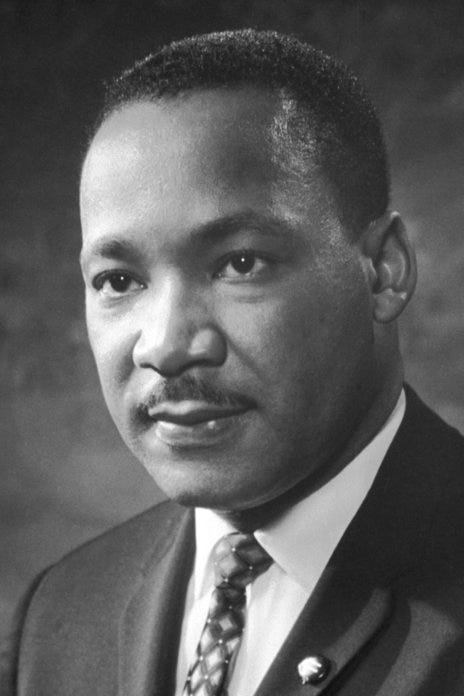MLK’s American Nationhood of Justice and Peace
With the country on edge and facing multiple crises of democratic legitimacy and racial inequality, Martin Luther King Jr.’s Nobel Peace Prize acceptance speech is worth revisiting this holiday period. Not as famous as some of his other iconic addresses, King’s Nobel speech provides a powerful statement about American patriotism based on the pursuit of justice and peace—not only as a non-violent strategy for advancing civil rights—but as a moral call to action for America to live up to its unmet ideals and for humanity to get beyond war and violence.
Dr. King accepted the prize in 1964 on behalf of the entire civil rights movement, and confronted strong outrage from segregationists and Jim Crow politicians who claimed King’s ideas were evidence of Communist influence on the young leader. King did not mince words about the reality of the time, however:
I accept the Nobel Prize for Peace at a moment when 22 million Negroes of the United States of America are engaged in a creative battle to end the long night of racial injustice…I am mindful that only yesterday in Birmingham, Alabama, our children, crying out for brotherhood, were answered with fire hoses, snarling dogs and even death. I am mindful that only yesterday in Philadelphia, Mississippi, young people seeking to secure the right to vote were brutalized and murdered. And only yesterday more than 40 houses of worship in the State of Mississippi alone were bombed or burned because they offered a sanctuary to those who would not accept segregation. I am mindful that debilitating and grinding poverty afflicts my people and chains them to the lowest rung of the economic ladder.
He goes on to defend the strategies of the movement by saying that violence and oppression against black Americans should not be overcome through “revenge, aggression, and retaliation,” but instead by the pursuit of love and equality before the law. Notably, in both his acceptance speech and the longer lecture he gave after receiving the prize, King described the struggle for black freedom and dignity as a direct expression of American patriotism and the fulfillment of the democratic promises embodied in the Declaration of Independence and Constitution:
I accept this award today with an abiding faith in America and an audacious faith in the future of mankind. I refuse to accept despair as the final response to the ambiguities of history…I refuse to accept the view that mankind is so tragically bound to the starless midnight of racism and war that the bright daybreak of peace and brotherhood can never become a reality.
With many of the same reactionary forces again gathering strength more than 50 years later—attacking the seat of government, seeking to overturn an election, and threatening to disrupt the upcoming transition of power—King’s words are not just nice pieces of rhetoric to ponder and celebrate. They contain a deep truth that sadly needs to be restated and defended from generation to generation.
“Civilization and violence are antithetical concepts.”





